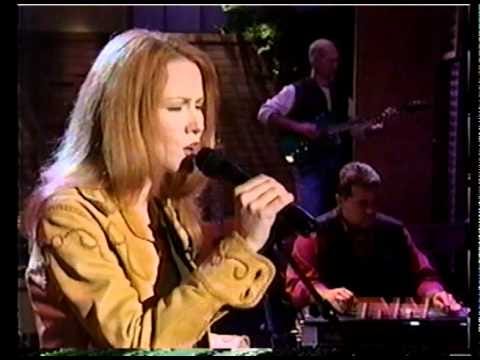This series, “On the Record,” will be a weekly Substack exclusive in which I’ll go through my recorded catalog song by song starting with my first album, Alabama Song, which was released on MCA Records in 1998. Photos will be attached if available and tolerable.
Nashville, Tennessee, late 1996 or early 1997. We lived in a one-bedroom hotbox on the second floor at Glen Manor Apartments, a modish 1950’s building which was on the corner of Wedgewood and 18th Avenue South, just a stone’s throw from music row. Billy Sherrill and his wife Charlene reportedly lived there before he became a hit producer. When my first husband and I did, Nashville was still somehow that same old Nashville it’d been when Mr. Sherrill was taking gigs as a sideman and coming home to Charlene and again, reportedly, a pet monkey. It would be old Nashville for years to come, before it became an it city, before it was decided that it could be cool in a way that those of us who knew it already was would never accept, not really. Most of Alabama Song was written in that one-bedroom hotbox. Sadly, the building was torn down and replaced with some non-descript looking condos at least ten years ago, but I drive by that corner every several days or so and remember.
I don’t remember why the title “Pardon Me,” floated into my head, but I do remember a healthy obsession with Tammy Wynette — all that heart in the throat sob singing, all that pedal steel, all that romance wrapped around death-defying feats of the heart set to a slow dance tempo produced by the same Mr. Sherrill — the country records of the sixties and seventies had me in their thrall. I set about trying to make my own.
I had a melody (my strongest suit at the time) to go with the title and the first two lines: You say the time has come for you to go/Why you’ve decided this, I’ll never know…
I wrote most of those early songs with my first husband, Butch. I don’t have the notebooks from back then and I don’t trust my memory to say who did what, but I know that I had the song pretty developed and the chorus written before he came on as my co-writer. And the chorus, of course, is a classic five-line one — each line builds emotionally and melodically — just like all those songs I’d been raised on.
Pardon me if I don’t understand/How a love like ours can turn out bad/You tell me I’ll be fine alone/without the love I’m leaning on/Well, pardon me if I don’t understand
There was no white space between the verses and the chorus. There was no development between you say you’ve lost the love you felt for me/well, baby you won’t find it if you leave and the declaration of confusion that followed — there were no leaps for the listener to make about the character. It was all pretty simple and straightforward. The melody did the heavy lifting, though I am still proud of the way that song has held up, just as a song. I still sing it. I was chasing what I felt was classic country music, and we almost caught it in a total of 13 unique lines. A love of economy was already present — I never liked to have to sing a lot of words.
As a recording, I still just dig it. From the simple acoustic lick of the intro (Kenny Greenberg) to the crying pedal steel (Dan Dugmore) to the (of course we did it) modulation, it sways and dances with that magic Nashville sound I love so much. It’s a record that’s behind and ahead of its time, all at the same time.
We recorded it at what was then Ronnie Millsaps’ old studio — I’ve recorded there since and it’s a great room in a town of great rooms — in, if memory serves, March 1997. Tony Brown, who was then the president of MCA Nashville had given me some money for a development deal, which essentially allowed me to go into the studio with the finest players we could find and see what happened so he could see if he wanted to sign me. He’d been told about me and had met with me — I’d even sung in his office live on the spot — but he didn’t like any of the demos I’d made so he sent me in the studio to make some more that he might like better because he knew one thing — he loved my voice. I will always be grateful to him for the opportunity, guidance, and love he gave me. I’d been talking to Kenny Greenberg about recording some stuff, so the stars aligned. We recorded “Pardon Me,” “Long Black Train,” and “Call My Name,” during those two days. Shoot, most of my first record is made up of those demos and things I recorded for my first publisher. Needless to say, Tony was convinced, and the course was set. Hard to believe that was over 24 years ago. But here’s the good news: if I had to do it all over again, I wouldn’t change a note of '“Pardon Me.” Not one.
Personnel, if I remember correctly:
Kenny Greenberg: Producer, Guitars
Rick Plant: Guitars
Dan Dugmore: Pedal Steel Guitar
Michael Rhodes: Bass
Chad Cromwell: Drums
Justin Neibank: Engineer






"On the Record" is is exactly the kind of personal story-telling I love! It's always best to get the details right from the source. Often, I feel the stories in between the songs are as interesting as the songs themselves. To echo another on this site; all of your work deserves to be on vinyl.
Fascinating read! I know it’s probably out of your control, but your catalog deserves to be on vinyl.